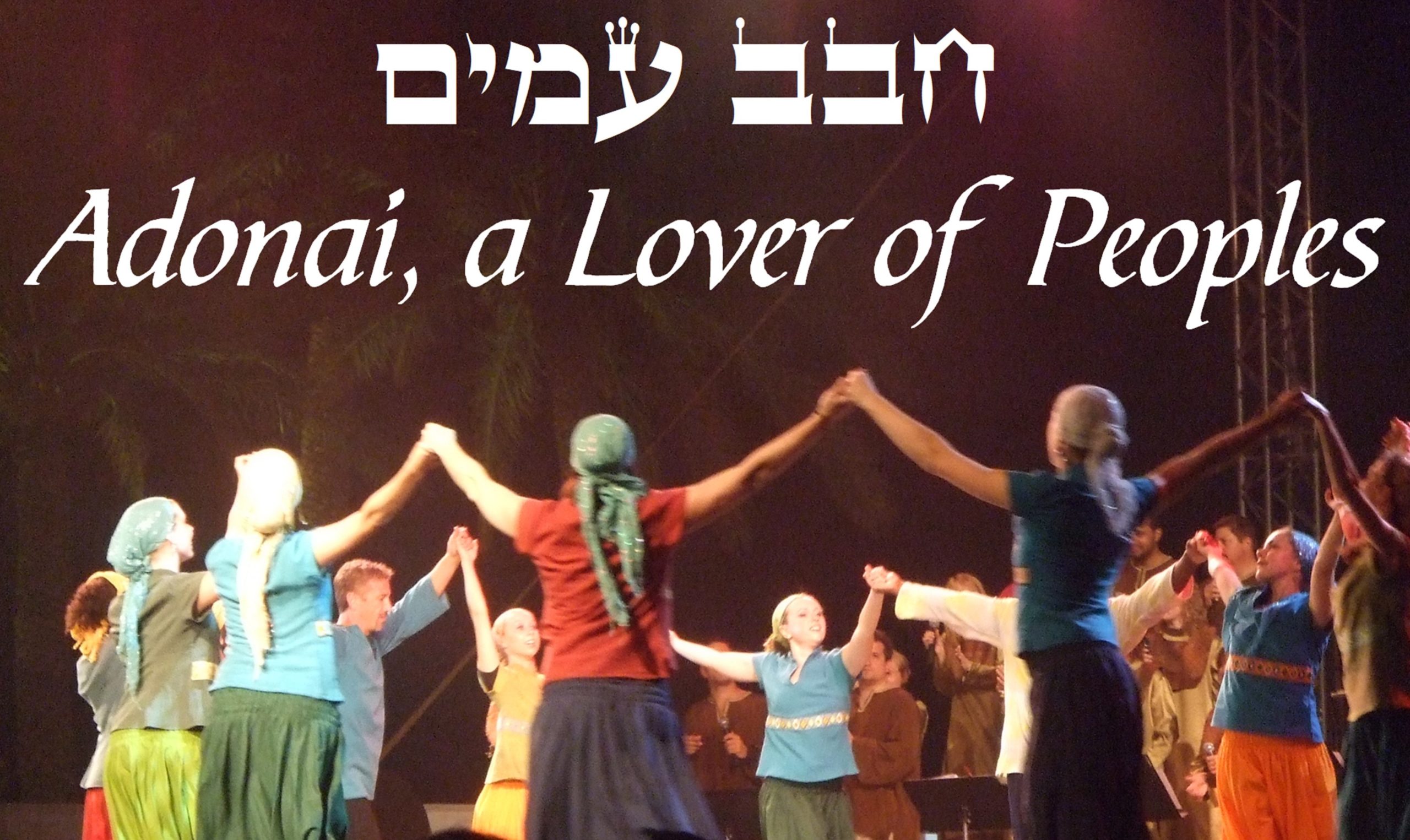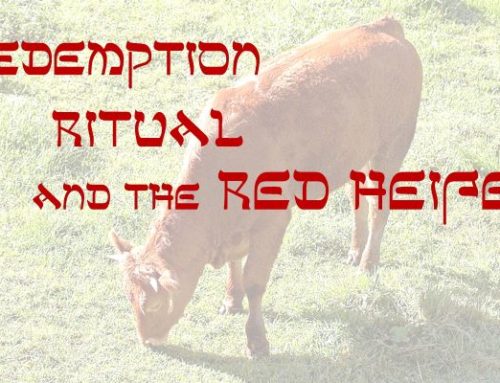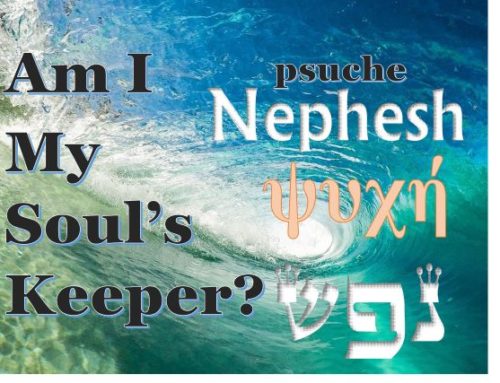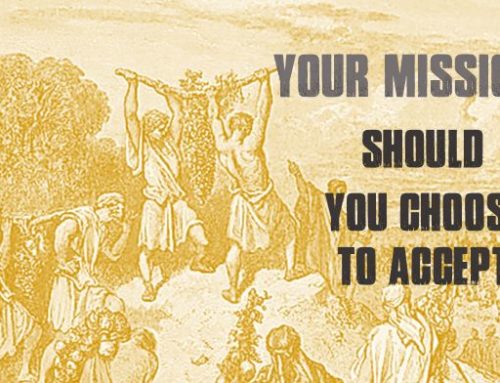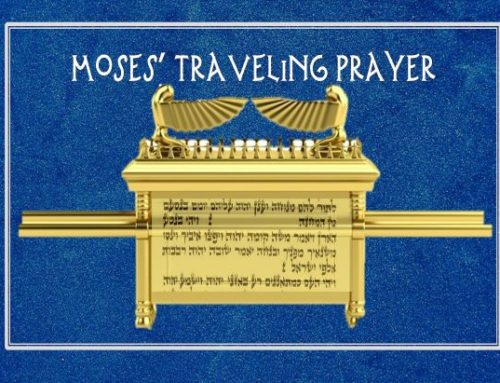V’Zot HaBrachah, Deuteronomy 33. 1 – 34.12, Joshua 1. 1-18
“Yes, He loves the people; All His saints are in Your hand; They sit down at Your feet; Everyone receives Your words.” Deut. 33. 3 NKJV
Moses’ final words entitled, “Now this is the Blessing” (v’zot habrachah), reveal twelve powerful blessings for each of the tribes. We will focus on just one thought revealed in his preface to those blessings – “The mystery of the love of God”. I call it a mystery because God professes His love with a Hebrew word meaning, “to hide within one’s bosom”. Moses revealed a secret affection, bound in the heart of God, the extent of which is only revealed in Messiah.
What does “a lover of peoples” mean? Many translations simply render the text, “He loved the people” Deut. 33.3 The Tree of Life Version correctly translates that He is the “Lover of people’s” (amim), plural form. Who are these people(s)? Some commentaries limit the statement to the twelve tribes of Israel, others include the nations who join themselves to Israel, and some read the text as an unqualified declaration – God loves the peoples of the earth.
Moses however speaks of a “hidden love”. Perhaps this is what Paul meant when he spoke of a “mystery”, previously hidden, but revealed in these last days.
“This mystery is that the Gentiles are joint heirs and fellow members of the same body and co-sharers of the promise in Messiah Yeshua through the Good News.” Ephesians 3. 6 TLV
Yeshua spoke of peoples as sheep, revealing another fold of sheep not a part of Israel. They too must be brought into unity, to be “one flock”.
“I am the Good Shepherd. I know My own and My own know Me, just as the Father knows Me and I know the Father. And I lay down My life for the sheep. I have other sheep that are not from this fold; those also I must lead, and they will listen to My voice. So there shall be one flock, one Shepherd.” John 10. 14-16 TLV
This mystery of love was hinted at by Moses. God’s love for the people(s) was not only hidden in His heart, His “holy ones” are held safely in His hand, and all will come to sit at His feet.
I. Hidden in the Heart (Chovev Amim)
“Indeed, a lover of peoples is He” Deut. 33.3 TLV
Chovev Amim, is an unusual phrase. In contrast to ahavah, used many times for love, chovev, appears once in this form in Deut. 33.3. The Shteinberg Biblical and Aramaic dictionary defines the root ח.ב.ה / ח.ב.ב as covered, buried in one’s bosom, placed on his heart, beloved. In Hebrew b’chavi, בחבי, means, “in my heart”.
When you were young, did you have a “secret admirer”? I carried a burning love in my heart for the young woman who would become my wife long before I revealed those feelings to her. Such is the picture of God as “A lover of peoples.” He carried a hidden love for the peoples of the world. He demonstrated that love first to Israel, and personally expressed that love to all through the Messiah.
“For God so loved the world that He gave His one and only Son, that whoever believes in Him shall not perish but have eternal life.” John 3. 16 NKJV
Chovev is that deep, hidden love, waiting to be revealed in its proper time.
The fact that it was hidden makes it even more special. God loved you long before you knew Him, showing you mercy, grace, and favor. Not because of our merit, but because of His great love.
Some years ago, I met a man from Asia who came to study and live in Israel. He came because of the transformation God had made in his life. I asked him how many generations of his family had served God and trusted in Yeshua as the Messiah. He looked at me and said, “I am the second generation. Before we served false gods, idols.” Here was an example of Moses’ revelation, “God, is a lover of peoples”. You are also deeply loved. Not only are they loved in God’s heart, His holy ones are held in His hand.
II. Hidden in His Hand
“All His kedoshim (holy ones) are in His hand” Deut. 33. 3 TLV
Who are these holy ones held in the loving hand of God? What does it mean to be kept in His hand? What better place to be than hidden in His hand! Some note this is the place where the master potter molds us. It seems Yeshua referenced this Torah Portion when he spoke of sheep of another fold. They too hear His voice, follow, and are kept in both His and the Father’s hand.
“My sheep hear My voice. I know them, and they follow Me. I give them eternal life! They will never perish, and no one will snatch them out of My hand. My Father, who has given them to Me, is greater than all. And no one is able to snatch them out of the Father’s hand. I and the Father are one.” John 10. 27-30 TLV
But some might say, Oh, He isn’t talking about me; I am not holy. What does it mean to be holy? It means you belong to God. This applies to not only Israel, but all who trust in God and His Son. How secure are you? Let Moses’ and Messiah’s words sink in. No one is able to snatch you from His hand! Now we come to the reason this parashah is read every year at Sukkot, the Feast of Tabernacles. This is the Feast when Israel and the nations come to Jerusalem, to sit at His feet.
III. Sitting at His Feet
“They sit down at Your feet” Deut. 33. 3 NKJV
Does God love the nations? The prophet Zechariah revealed Tabernacles as the time when the people(s) will come up to Jerusalem to worship the Lord. (Zech. 14. 16-19) Our simple booths, or sukkah, reminds us of the great heavenly Tabernacle calling the nations to come to the King and sit at His feet.
Praying for the Nations
On Yom Teruah Israel offered a bull, and one bull also on Yom Kippur. Passover has two bulls. But look at the extravagance of Sukkot. Thirteen bulls on day one, 12 on day two, 11 on day three, 10 on day four, 9 on day five, 8 on day six, and 7 on day seven – 70 bulls in total! Jewish commentaries note this was Israel’s opportunity to prayer for the seventy nations of the world revealed in Scripture – seventy bulls for seventy peoples. (Bab. T. Sukkah 55b) God loves people(s). God loves you!
Yeshua quoted the prophet Isaiah saying, “Is it not written, ‘My house shall be called a house of prayer for all nations’?” Mark 11. 17 NKJV
Yeshua visited Jerusalem during Sukkot, teaching in the Temple’s courts. On the last great day of the Feast He cried, “If anyone thirsts, let him come to Me and drink.” (John 7. 37 NKJV) To whom was He speaking? To only the house of Israel or to also the nations gathered in Jerusalem? Surely, He also mean the Ethiopian, the Arabs, and the Greeks. The criteria is thirst.
Conclusion
We read this special Torah Portion on the end of Sukkot during Shmini Atzeret. During a Feast dedicated to inviting not only our neighbors to our Sukkah but the nations to the House of God we see a mystery revealed. God loves people(s). He has hidden this love in His heart. He holds them in His hand and calls them to sit at His feet to be lifted up by the Word. Scripture hints that just as the King of Israel was to read the Word of God to the people during Sukkot once every seven years, so the King of Kings, Messiah, will gather all the peoples in the end times to sit at His feet in the coming Messianic age. (Deut. 31.10-13) May you feel that special love of God, the safety you have in His hand and be blessed sitting at His feet.
Shavua Tov from Zion
